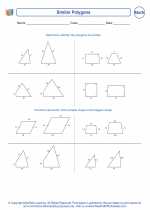Number Sequences Study Guide
Number sequences are sets of numbers that follow a specific pattern or rule. Understanding number sequences is an important concept in mathematics and can be found in various mathematical problems and real-life applications.
Types of Number Sequences
There are several types of number sequences, including:
- Arithmetic Sequences
- Geometric Sequences
- Fibonacci Sequence
- Square Number Sequence
- Cubic Number Sequence
Arithmetic Sequences
An arithmetic sequence is a sequence of numbers in which the difference between any two consecutive terms is constant. The constant difference is called the "common difference". The general form of an arithmetic sequence is: a, a + d, a + 2d, a + 3d, ...
Formula for the nth term of an arithmetic sequence:
an = a1 + (n - 1)d
Geometric Sequences
A geometric sequence is a sequence of numbers in which each term after the first is found by multiplying the previous term by a fixed, non-zero number called the "common ratio". The general form of a geometric sequence is: a, ar, ar2, ar3, ...
Formula for the nth term of a geometric sequence:
an = a1 * r(n-1)
Fibonacci Sequence
The Fibonacci sequence is a series of numbers in which each number is the sum of the two preceding ones, usually starting with 0 and 1. The sequence starts as: 0, 1, 1, 2, 3, 5, 8, 13, 21, ...
Square Number Sequence
The square number sequence is a sequence of numbers that are the squares of natural numbers. The sequence starts as: 1, 4, 9, 16, 25, 36, ...
Cubic Number Sequence
The cubic number sequence is a sequence of numbers that are the cubes of natural numbers. The sequence starts as: 1, 8, 27, 64, 125, ...
Study Tips for Number Sequences
- Practice identifying patterns in number sequences.
- Understand the difference between arithmetic and geometric sequences.
- Memorize the formulas for the nth term of arithmetic and geometric sequences.
- Solve a variety of sequence problems to reinforce your understanding.
- Use visual aids and diagrams to help comprehend the sequences.
By understanding and practicing number sequences, you'll be better prepared to solve problems related to sequences and series in mathematics.
[Number Sequences] Related Worksheets and Study Guides:
.◂Math Worksheets and Study Guides Eighth Grade. Similarity and scale
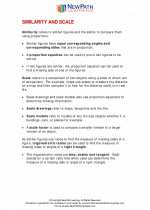
 Worksheet/Answer key
Worksheet/Answer key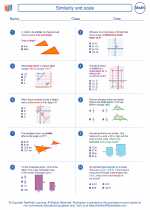
 Worksheet/Answer key
Worksheet/Answer key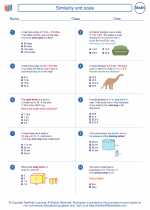
 Worksheet/Answer key
Worksheet/Answer key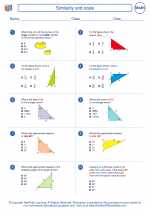
 Worksheet/Answer key
Worksheet/Answer key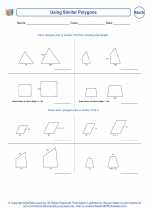
 Worksheet/Answer key
Worksheet/Answer key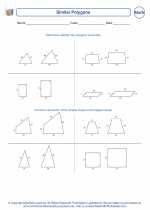
 Worksheet/Answer key
Worksheet/Answer key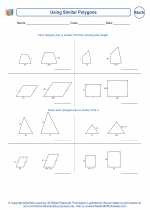
 Worksheet/Answer key
Worksheet/Answer key